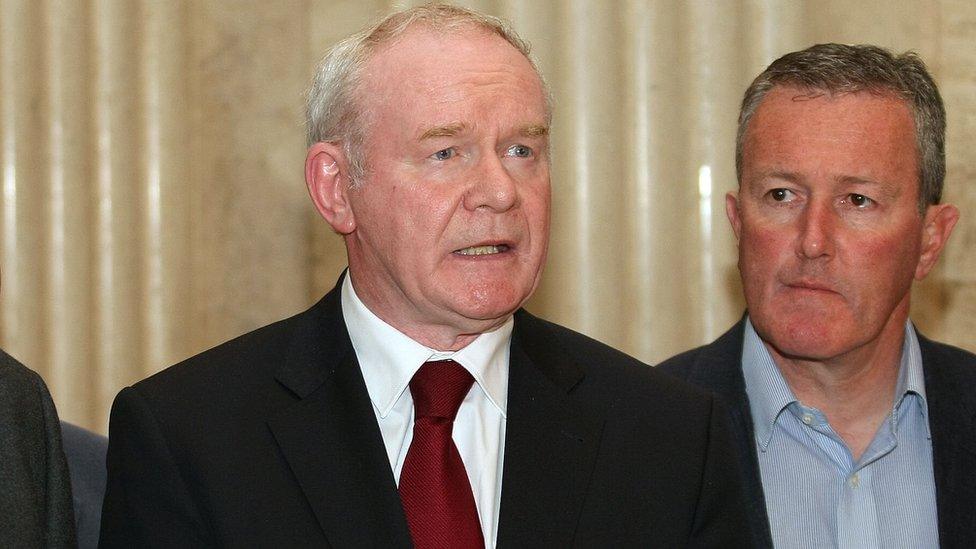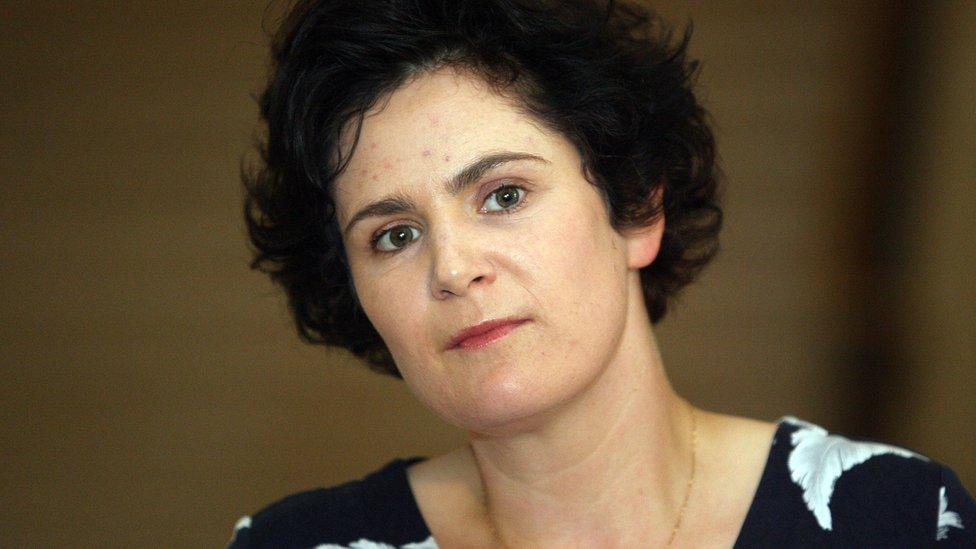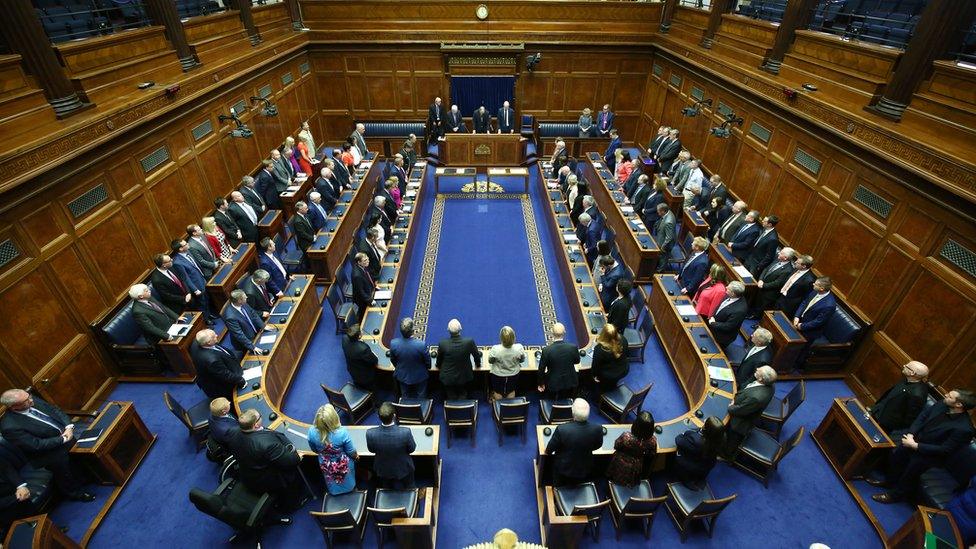NI Assembly: Stormont departments 'should be allocated next week', says McGuinness
- Published

Martin McGuinness says the Stormont ministries could be allocated next week
Deputy First Minister Martin McGuinness has said he expects the Stormont parties could allocate government departments at the start of next week.
The DUP, Sinn Féin, the SDLP and the Alliance Party are due to meet on Tuesday to discuss a draft document on Stormont's programme for government.
However, the SDLP and Alliance have yet to decide if they will form part of the Northern Ireland Executive.
The Ulster Unionists said last week they would not be taking a department.
Instead, they will form Stormont's first ever official opposition.
Model
The draft document on the key points of the programme for government - a plan of priorities and action for the new Northern Ireland Executive - is "weak", according the the SDLP's Claire Hanna.
She added that it contains "a lot of very aspirational language which wouldn't allow anybody to hold any future government to account".

The SDLP's Claire Hanna said the draft programme for government is "weak"
But Mr McGuinness of Sinn Féin said it is based on a model previously tried out in Scotland and Finland.
He added that he wants all of the sectors of civil society to buy into the final programme for government.
Direction
The BBC has seen an early draft of a framework document prepared for the politicians by Stormont officials.
It contains 33 indicators of the direction the power-sharing executive wants Northern Ireland's society to move in.
On health matters, they include reducing health inequality; increasing healthy life expectancy; reducing preventable deaths, improving the quality of the healthcare experience; improving mental health; improving health in pregnancy; improving support for adults with care needs and to improving support for looked after children.
In terms of education, they document targets an improvement in improve educational outcomes; reducing educational inequality; improving the quality of education; improving the skills of the workforce in employment and improving child development.

The programme for government is to be put before MLAs for their approval
Employment and economic aims are improving the number of people in work; reducing the number of people who are economically inactive; increasing the number of people working in good jobs; reducing poverty; increasing the size of the economy; increasing the competitiveness of the economy; increasing innovation in our economy; improving transport connections for people, goods and services; improving internet connectivity; increasing the use of public transport and active travel.
Other targets include improving the perception of public services; improving citizen safety from crime; improving the supply of suitable housing; to increase respect for each other; improving cultural participation; increasing the confidence and capability of people and communities; increasing environmental sustainability; improving our attractiveness as a destination; increasing the perception of society as shared; and increasing opportunity for our most deprived communities.
Outcomes
An accompanying document makes some tentative suggestions about how progress towards achieving these goals could be measured.
But at this point it does not contain any specific targets like the job creation, investment and visitor numbers pledges contained in the Programme for Government 2011-15, external.
The draft framework document also contains 13 proposed outcomes.
They are:
"we prosper through a strong, competitive economy";
"we value the place we live in, and protect it for our children";
"we have a more equal society";
"we enjoy long, healthy, active lives";
"we are an innovative, creative society, where people can fulfil their potential";
"we have more people working in better jobs";
"we have a safe community where we respect the law and each other";
"we care for others and we help those in need";
"we are a shared society that respects diversity";
"we are a confident, welcoming, outward-looking society";
"we have high quality public services";
"we have created a place where people want to live and work, to visit and invest";
"we connect people and opportunities through our infrastructure".
Consultation
According to last year's Fresh Start agreement, officials were due to have a framework for a future programme for government prepared by the end of last month.
The current talks were then supposed to resolve a draft programme for government that could be put to the Northern Ireland Assembly for its approval.
Critics claim this timetable is already slipping as the politicians are currently considering a framework rather than a fuller draft programme.
The document seen by the BBC is expected to be amended by the parties then put out to a three-month public consultation.
A full programme for government will be published towards the end of the year, alongside a new budget, economic strategy, investment strategy and social policy plan.